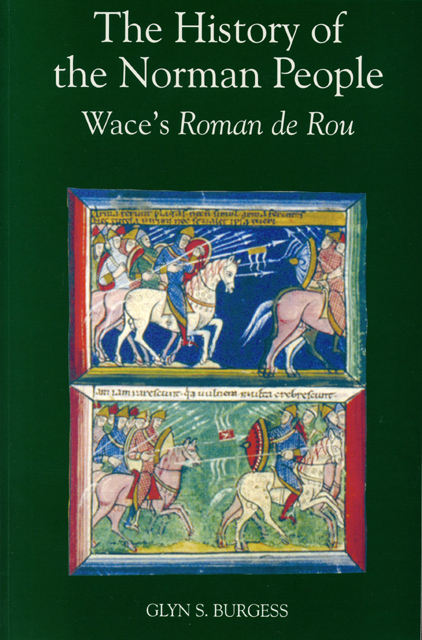Book contents
Part Two
Published online by Cambridge University Press: 21 March 2023
Summary
We have reached the figure of Rou and we will speak to you about Rou; the tale we have to tell begins at this point, but, to speed our task, we will reduce the number of lines in each stanza;* the road is long and hard and we fear the toil. Hasting, who never did anything but harm, was in France; his heart was never other than arrogant and treacherous. He brought much destruction to the Holy Church and much violence to Christians, having no fear of God or of His curse. His soul should be destined for great tribulation, since that is what he has deserved and what we ask from God. (1–11)
Rou and Hasting were both Danes, but very different men; Rou acted in accordance with justice, whereas Hasting did the opposite. Rou was friendly, Hasting arrogant and fickle, displaying no mercy to nobleman or serf and never showing any love for cleric or non-cleric, monk or lay brother. The people of Denmark were always arrogant, always overweening and very covetous; they were cruel, proud, unruly and lustful. None of them was content with just one wife; from several wives they had a remarkable number of children, many little ones and many older ones. They had so many sons, daughters, wives and servants that even the richest man could not feed everyone. (12–24)
No matter what they acquired, it was not enough to feed their children who were becoming very numerous. So it often happened that, by casting lots, they rid the land of its strong and finest men, driving them out of the country either by land or by sea; wherever they went, these men did a great deal of harm. On one occasion, it is said, this caused violent disagreement in Denmark. The sons started a great war and a great dispute with their fathers, who wanted to drive them away, whether they liked it or not. They were ordering them to get out of the land and make their home in other regions; they were to capture other lands peacefully or forcibly and leave their inheritances to their little brothers. (25–38)
The sons told their fathers that they would certainly not leave or take anyone else’s inheritances by force; not wanting to be in exile throughout the world, they would share the land with their little brothers.
- Type
- Chapter
- Information
- The History of the Norman PeopleWace's <i>Roman de Rou</i>, pp. 11 - 88Publisher: Boydell & BrewerPrint publication year: 2004

